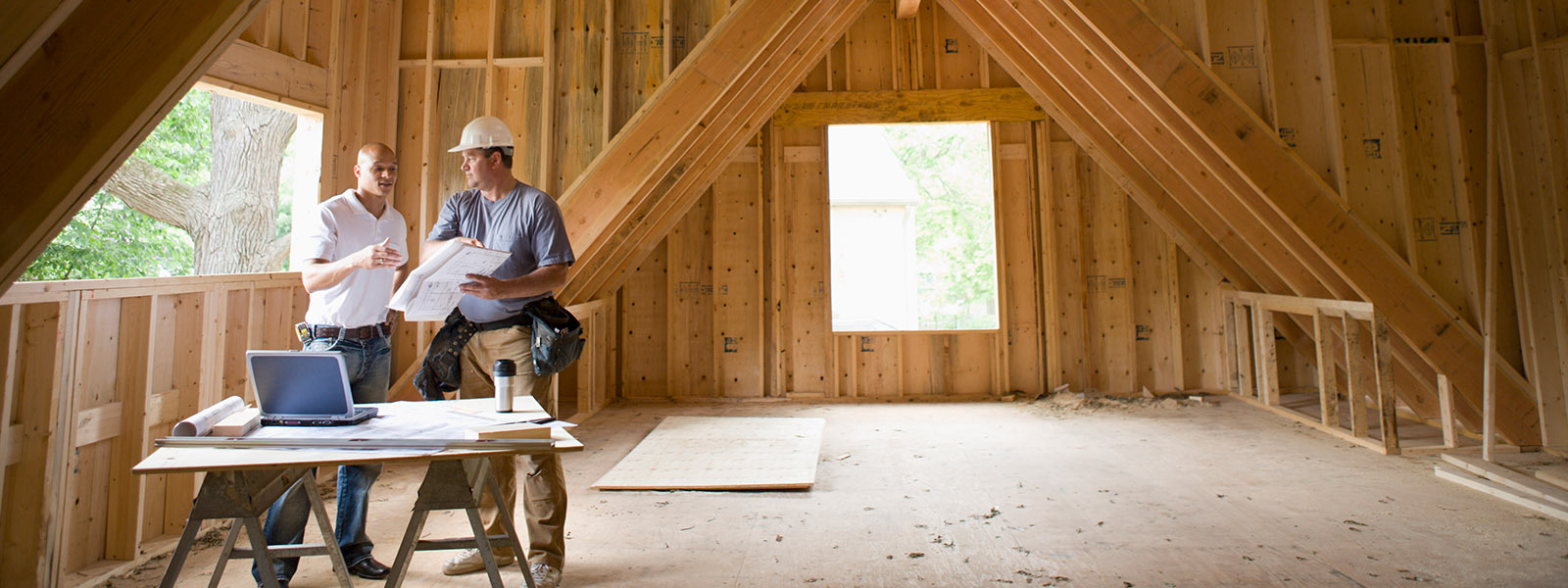Estimated reading time: 5 minutes
Newly constructed homes have been a hot part of the real estate market as the supply of existing homes has remained low. This demand has also led to higher prices. In November of 2020, the median new home price rose 21% year-over-year to $335,000 compared to existing homes at $310,800. To offset the price gap, many builders offer upgrades or mortgage incentives, but it’s important to count the costs and ensure you’re working with a trustworthy company. Here are six tips for buying from a builder that may help you secure a solid home with a competitive price and mortgage.
1. Research builders and their warranties
First, research respected homebuilders who work in the area you want to live. New homes should deliver years of low-maintenance living, but some builders earn reputations for poor workmanship, and even the best can make mistakes. To ensure you’re working with a solid company:
- Find out how long they’ve been in business. Their longevity can indicate whether they have good operating practices and if they’ll still be around if you experience problems down the road.
- Determine exactly what their warranties cover and for how long. Many builders have warranties that cover specific structural, mechanical, and electrical components, but you may need separate coverage for items like appliances.
- Ask if they have a dedicated warranty department.
- Contact local real estate agents for their opinions of the builder.
- Check for complaints with organizations such as the Better Business Bureau (BBB) and your state attorney general’s office.
- Knock on doors where the builder has sold homes before and ask homeowners about their experiences.
- Search the web for related news and customer reviews.
- Ask other builders what they’ve heard about yours.
2. Work with a real estate agent
Buying a new home often means you can negotiate directly with a builder’s real estate agent and sales reps, but there won’t be anyone looking out for your best interests. Hiring a buyer’s agent to represent you can give you that leg up, especially if he or she has worked with your builder or others before. Additionally, the builder will most likely pay your agent’s commission, so you’ll get this expertise for free.
Be aware that some builders may offer you a “bonus” if you go it alone, but according to Florida Realty Marketplace, it’s “almost always less than what they offer to pay the buyer’s agent.” You may also be required to use the builder’s lender to keep it. All told, this could set you up for paying hidden costs and overlooking issues an experienced agent would catch. Also beware that builders may also offer incentives to your agent. Be sure those relationships are disclosed up front.
3. Shop around for your mortgage
As you consider each home, there’s a good chance builders will refer you to their preferred lenders or in-house financing department to arrange a loan. They, or the lender, may also offer added incentives if you work with them. Before you sign the dotted line, consider shopping for your mortgage. A 2020 study found that homebuyers in 50 major cities could save $22,578–$59,612 in interest over the life of their loans by comparison shopping. Depending on how long you plan to stay in the home, savings like this may offset any cash offered toward closing costs or discounts on a home’s sales price.
It’s also important to confirm which closing costs you’ll be responsible for with the builder. According to New Home Source, they may ask you to pay expenses sellers usually do. Allowing items such as pre-paid property taxes and title insurance to move to your side of the ledger could cost you thousands.
4. Beware of sales tactics
It’s not unusual for builders to also offer incentives from free home upgrades to vacations. These are common when a builder starts selling in a community, closing it out, or hits a slow sales patch. Regardless, don’t let incentives push you into a bad deal. As The Balance warns, they often come with strings attached and a builder may require you to:
- Pay their asking price with no negotiation allowed.
- Use their lender, which may charge a higher interest rate than you can find elsewhere.
- Agree to buy a home that day.
- Put a large amount of earnest money down that may not be refundable.
- Use their real estate agent to sell your current home, even though their agent may not be an expert in your area.
This isn’t to say that builder incentives can’t be a good deal, but it’s important to check the pros and cons.
5. Ensure incentives deliver real value
If you do accept an incentive, make sure it’s worth it, whether it’s free upgraded flooring or countertops. Some may not improve your home’s appraised value, such as certain lighting or appliance packages. Others may make financial sense, like going from laminate flooring to hardwoods.
If you will pay out of pocket for an upgrade, double-check the pricing. If the builder would charge $15.00/sq. ft. for flooring you could have installed for $7.50 through a reliable contractor, it may make sense to do the upgrade yourself after you move in. You can also consult an experienced real estate agent or appraiser for advice.
6. Get an inspection
Experts recommend getting new homes inspected just like existing homes. That’s because a new home can pass municipal and builder inspections, but still have underlying problems. According to Builder Online, a construction study revealed that single-family homes have an “average deficiency rate” of 3%. Issues ranged from problematic electrical and plumbing systems to exterior weather barriers.
An inspector may be able to catch these and other problems before you close on your home. In fact, you can make your sale contingent on passing if the homebuilder agrees. Many inspectors also offer phase inspections for homes under construction. If permitted, they evaluate homes at key times, such as before the foundation is poured or drywall is installed over wiring and plumbing.
All in all, buying a new home may be the biggest investment of your life. But by running the numbers on your mortgage options and choosing your incentives wisely, it may also be a great deal. For more on the buying process or to get Pre-Approved with Mr. Cooper, see our homebuying guide here.







